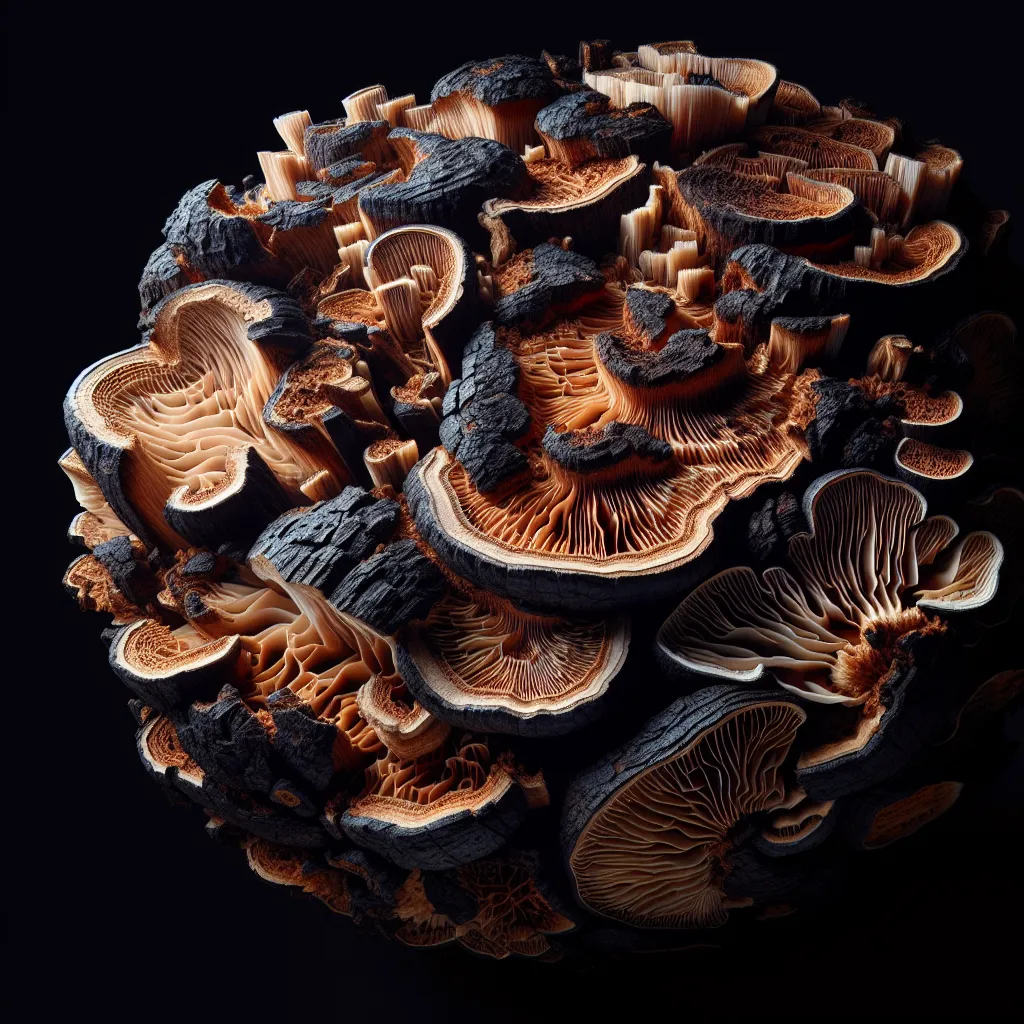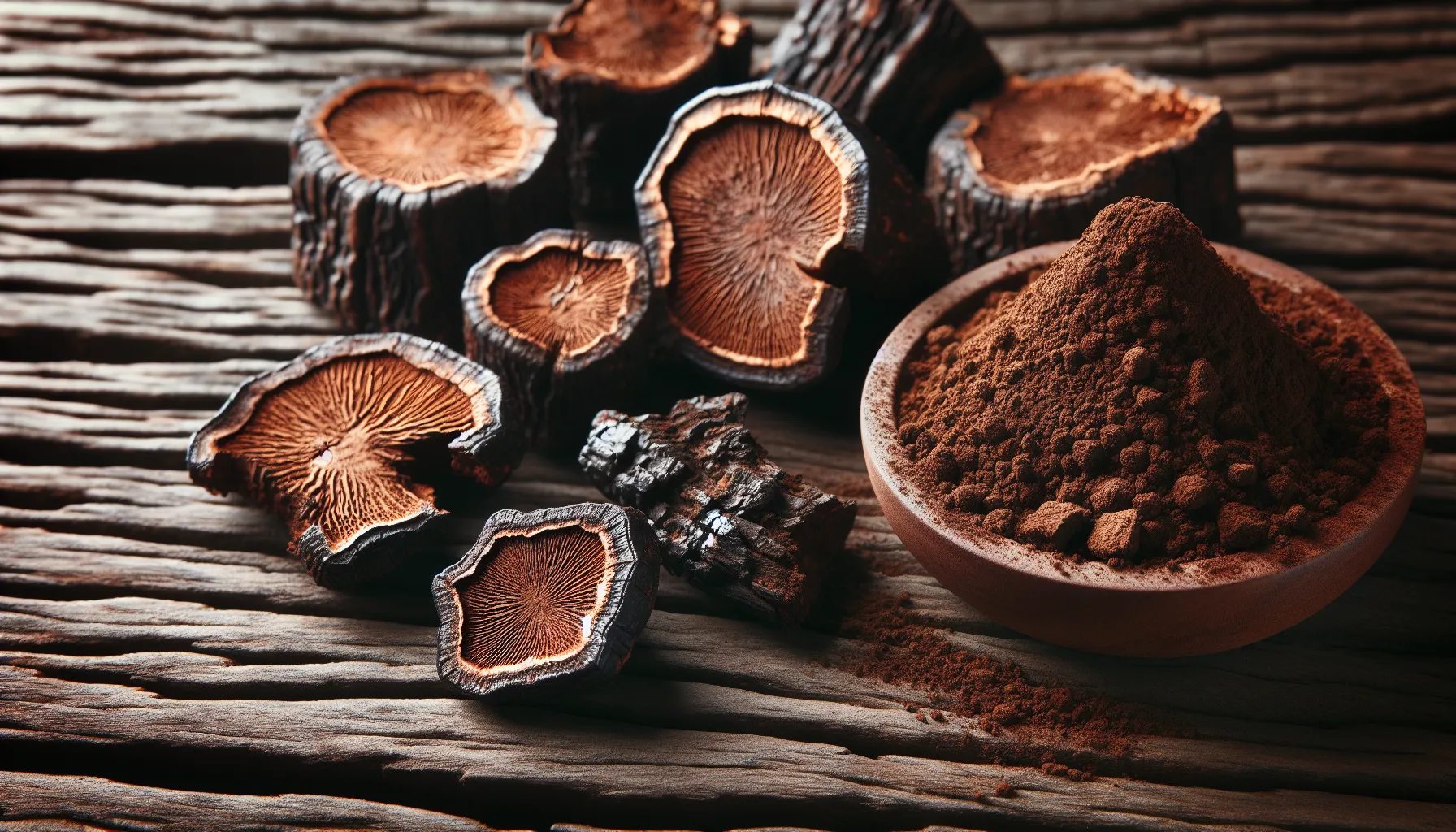Chaga, scientifically known as Inonotus obliquus, is a type of fungus that mainly grows on birch trees in colder climates across the Northern Hemisphere. While it may not look particularly appealing, resembling a clump of dirt more than a traditional mushroom, chaga has been harvested for centuries for its potential medicinal properties. This article delves deep into what chaga is, its uses, side effects, and the precautions one should consider before incorporating it into their health regimen.
What is Chaga?
Chaga is a non-toxic fungus that grows on the bark of birch trees. It can be recognized by its distinctive hard, woody, charcoal-like appearance, which is due to the presence of melanin. Chaga is rich in a variety of vitamins, minerals, and nutrients, including B-complex vitamins, vitamin D, potassium, rubidium, cesium, amino acids, fiber, copper, selenium, zinc, iron, manganese, magnesium, and calcium.

Historical and Traditional Uses
Historically, chaga has been used in folk medicine in Northern European countries and Russia. Traditionally, it has been used to support gastrointestinal health, boost immunity, and improve overall health. It has also been consumed as a tea for various ailments, including stomach diseases and heart and liver issues.
Modern Medicinal Uses
In modern times, chaga has gained popularity as a supplement and is used for its potential immune-boosting properties. It is thought to stimulate the immune system, which can be beneficial for fighting off colds and infections. Some of the chemicals present in chaga, such as antioxidants, may help to protect cells from damage by free radicals.
Antioxidant Properties
Antioxidants are molecules that can prevent or slow damage to cells caused by free radicals, which are unstable molecules that the body produces as a reaction to environmental and other pressures. The high content of antioxidants in chaga could potentially have a protective effect against various diseases, including heart disease and cancer.

Precautions and Side Effects
While chaga is considered safe for most people, there are some precautions and side effects to be aware of:
- Kidney Damage: Chaga contains a substance called oxalate, which in high amounts can cause kidney damage.
- Pregnancy and Breastfeeding: There is not enough reliable information to determine if chaga is safe to use during pregnancy or while breastfeeding. It is best to err on the side of caution and avoid use.
- Autoimmune Diseases: Chaga can cause the immune system to become more active, which could increase symptoms of autoimmune diseases such as multiple sclerosis (MS), lupus (SLE), and rheumatoid arthritis (RA).
- Bleeding Disorders: There is some concern that chaga may increase the risk of bleeding, particularly in people with bleeding disorders.
- Surgery: It is recommended to avoid chaga before scheduled surgery due to its potential to increase bleeding.
Interactions With Medication
Chaga can interact with some types of medications:
- Medications for Diabetes: Chaga might affect blood sugar levels, requiring close monitoring.
- Immunosuppressants: Chaga may counteract the effects of drugs that decrease the immune system.
- Anticoagulant/Antiplatelet drugs: Chaga may enhance the effects of drugs that slow blood clotting, increasing the risk of bruising and bleeding.
Dosing Considerations
Currently, there is not enough scientific information to determine an appropriate range of doses for chaga. Remember that natural products are not always necessarily safe, and dosages can be important. It’s crucial to follow relevant directions on product labels and consult healthcare professionals before using.
Research and Studies
Numerous studies have been conducted to understand the potential health benefits of chaga. Research suggests that chaga might have antitumor and antiviral properties, and it might also reduce inflammation and enhance physical endurance.
Here are some niche resources that provide additional information on the research and applications of chaga:
- Memorial Sloan Kettering Cancer Center provides an in-depth overview of chaga, including its history, potential uses, and the science behind its medicinal properties.
- Examine.com offers a comprehensive analysis of various studies on chaga, summarizing the findings on its health effects.
Conclusion
Chaga has an intriguing history and a growing base of research supporting its traditional uses. However, as with any supplement, it is important to use caution, particularly regarding dosing and potential interactions with other medications or health conditions. Always consult with a healthcare provider before beginning any new supplement, especially if you are pregnant, breastfeeding, have an existing health condition, or are taking other medications.

Chaga stands out as a promising natural remedy with a rich cultural history and significant health benefits. As research continues to uncover more about its properties, chaga may become an even more important part of natural health practices around the world.
